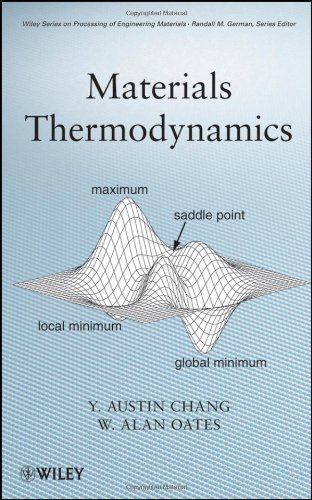

Most ebook files are in PDF format, so you can easily read them using various software such as Foxit Reader or directly on the Google Chrome browser.
Some ebook files are released by publishers in other formats such as .awz, .mobi, .epub, .fb2, etc. You may need to install specific software to read these formats on mobile/PC, such as Calibre.
Please read the tutorial at this link: https://ebookbell.com/faq
We offer FREE conversion to the popular formats you request; however, this may take some time. Therefore, right after payment, please email us, and we will try to provide the service as quickly as possible.
For some exceptional file formats or broken links (if any), please refrain from opening any disputes. Instead, email us first, and we will try to assist within a maximum of 6 hours.
EbookBell Team

4.3
48 reviewsMaterials Thermodynamics provides both students and professionals with the in-depth explanation they need to prepare for the real-world application of thermodynamic tools. Based upon an actual graduate course taught by the authors, this class-tested text covers the subject with a broader, more industry-oriented lens than can be found in any other resource available. This modern approach:
Reflects changes rapidly occurring in society at large—from the impact of computers on the teaching of thermodynamics in materials science and engineering university programs to the use of approximations of higher order than the usual Bragg-Williams in solution-phase modeling
Makes students aware of the practical problems in using thermodynamics
Emphasizes that the calculation of the position of phase and chemical equilibrium in complex systems, even when properly defined, is not easy
Relegates concepts like equilibrium constants, activity coefficients, free energy functions, and Gibbs-Duhem integrations to a relatively minor role
Includes problems and exercises, as well as a solutions manual
This authoritative text is designed for students and professionals in materials science and engineering, particularly those in physical metallurgy, metallic materials, alloy design and processing, corrosion, oxidation, coatings, and high-temperature alloys.